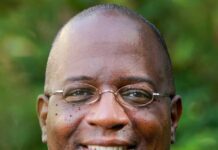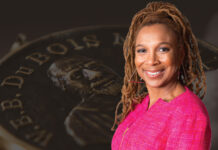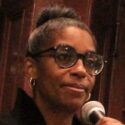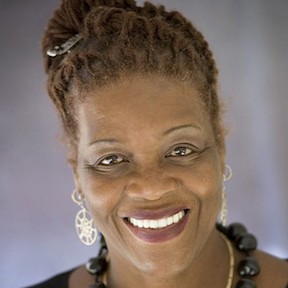 Carole Boyce Davies was named the Frank H.T. Rhodes Professor of Humane Letters and professor in Africana studies at Cornell University in Ithaca, New York. She is the former Herskovits Professor of African Studies and professor of comparative literary studies and African American studies at Northwestern University in Evanston, Illinois. She is the author of Black Women, Writing and Identity: Migrations of the Subject (Routledge, 1994) and Left of Karl Marx: The Political Life of Black Communist Claudia Jones (Duke University Press, 2008).
Carole Boyce Davies was named the Frank H.T. Rhodes Professor of Humane Letters and professor in Africana studies at Cornell University in Ithaca, New York. She is the former Herskovits Professor of African Studies and professor of comparative literary studies and African American studies at Northwestern University in Evanston, Illinois. She is the author of Black Women, Writing and Identity: Migrations of the Subject (Routledge, 1994) and Left of Karl Marx: The Political Life of Black Communist Claudia Jones (Duke University Press, 2008).
Born in Trinidad and Tobago, Professor Boyce Davies earned a bachelor’s degree in English at the University of Maryland Eastern Shore. She holds a master’s degree in Africana studies from Howard University in Washington, D.C., and a Ph.D. in African literature from the University of Ibadan in Nigeria.
 Major Jackson, an accomplished poet and essayist, will join the English department faculty at Vanderbilt University in Nashville on January 1. He has been serving as the Richard A. Dennis Professor of English at the University of Vermont. He has been on the faculty there for the past 18 years. His latest collection of poetry is The Absurd Man (W.W. Norton, February 2020).
Major Jackson, an accomplished poet and essayist, will join the English department faculty at Vanderbilt University in Nashville on January 1. He has been serving as the Richard A. Dennis Professor of English at the University of Vermont. He has been on the faculty there for the past 18 years. His latest collection of poetry is The Absurd Man (W.W. Norton, February 2020).
Professor Jackson is a graduate of Temple University in Philadelphia. He holds a master of fine arts degree in creative writing from the University of Oregon.
 Wallace Best, professor of religion and African American studies at Princeton University in New Jersey, was named director of the Gender and Sexuality studies program at the university. Dr. Best, who specializes in 19th- and 20th-century African American religious history, is the first African American and the first male director of the program in its 38-year history. Professor Best is the author of Passionately Human, No Less Divine: Religion and Culture in Black Chicago, 1915-1952 (Princeton University Press, 2005).
Wallace Best, professor of religion and African American studies at Princeton University in New Jersey, was named director of the Gender and Sexuality studies program at the university. Dr. Best, who specializes in 19th- and 20th-century African American religious history, is the first African American and the first male director of the program in its 38-year history. Professor Best is the author of Passionately Human, No Less Divine: Religion and Culture in Black Chicago, 1915-1952 (Princeton University Press, 2005).
Dr. Best earned a Ph.D. in religion at Northwestern University in Evanston, Illinois.
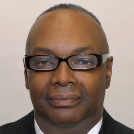 Christopher C. Mathis Jr. has been appointed as professor and assistant dean of research for the School of Agriculture, Fisheries and Human Sciences at the University of Arkansas at Pine Bluff. Dr. Mathis has served in a number of leadership roles at South Carolina State University in Orangeburg. Most recently, he served as director of student development and support.
Christopher C. Mathis Jr. has been appointed as professor and assistant dean of research for the School of Agriculture, Fisheries and Human Sciences at the University of Arkansas at Pine Bluff. Dr. Mathis has served in a number of leadership roles at South Carolina State University in Orangeburg. Most recently, he served as director of student development and support.
Dr. Mathis has a doctoral degree in agriculture and extension education and a master’s degree in educational administration and higher education from Michigan State University. He holds a bachelor’s degree in biology, with a minor in chemistry, from Johnson C. Smith University in Charlotte, North Carolina.
